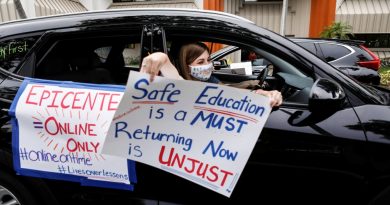Appeal to move forward in protest camp case despite Sask. government’s attempt to stop it
Saskatchewan’s highest court will hear an appeal in a case involving Indigenous peoples’ rights to protest, despite the provincial government’s efforts to stop the appeal from moving forward.
A lower court decision on the case, centred around a protest camp set up near the province’s legislature in 2018, was appealed by a group of people involved in the protest camp.
The government fought that appeal, arguing the case is now “moot,” but a decision delivered last week by the Saskatchewan Court of Appeal says the appeal should go ahead.
Members of the Justice for our Stolen Children group have appealed a September 2018 Court of Queen’s Bench ruling, which ordered the protesters to leave the park and remove the structures which had been erected on the lawn of the legislative grounds earlier that year.
They argue their constitutional right to freedom of expression was interfered with in an unjustified way, and also that the arrest and detainment of six members at the camp was without good reason.
The provincial government and police tried to have the appeal court dismiss the group’s application to appeal, arguing that bylaw changes made after the appeal was filed made it moot.
But in a unanimous decision delivered Jan. 31, Saskatchewan’s highest court ruled that the appeal should be heard.
Court of Appeal Chief Justice Robert Richards wrote in the decision that the matter “still involves a live controversy, notwithstanding the repeal of the bylaws,” and concluded that the appeal “is not moot.”
Dan LeBlanc, the lawyer representing six members of the Justice for Our Stolen Children group, said the members are looking forward to their day in court.
“We’re asking the court of appeal to decide how the government and police … can treat Indigenous people who are protesting the government,” LeBlanc said.
“There’s a lot of important issues at stake for our democracy and for reconciliation coming up in the decision.”
In a statement emailed to CBC on Wednesday, a spokesperson said the provincial government “respect[s] the Court’s decision and will await the hearing on the merits of the appeal.”
The statement said because the matter is before the courts, the province has no further comment.
Camp forms, conflict arises
The Justice for Our Stolen Children protest camp formed in February 2018 at Wascana Centre, a park near the legislature building.
It was in response to the acquittals of two men accused of murdering young Indigenous people: Gerald Stanley, who was acquitted in the death of 22-year-old Colten Boushie in Saskatchewan, and Raymond Cormier, acquitted in Winnipeg in the death of 15-year-old Tina Fontaine.
The protesters said they wanted to draw attention to racism and violence against Indigenous people in the welfare and justice systems.
For months, a sacred fire burned on the lawn across from the provincial legislature and several teepees were put up. But the camp was not welcome by the government and conflict grew.
In June 2018, Regina police arrested six people at the camp: Richelle Dubois, Gaylene Henry, Constance Dubois, Prescott Demas, Dinah‑Mae Papequash and Shannon Corkery. They are now being represented by LeBlanc.
Two months later, the fight between the group and the provincial government went to Court of Queen’s Bench.

The province wanted a court order to have the camp removed, while protesters argued it was protected under the Charter of Rights and Freedoms.
The group lost in court and was ordered to leave the camp in September 2018. They then started to move toward an appeal.
‘The issues remain relevant’: lawyer
LeBlanc said the government’s move to have the appeal application quashed was catalyzed by a different court decision, involving Tristen Durocher, a 24-year-old Métis man who walked 635 kilometres from northern Saskatchewan and set up a teepee in front of the provincial legislature in 2020.
He held a 44-day ceremonial fast, which he said was intended to call the government’s attention to high suicide rates in the north.

The provincial government had Durocher served with a notice of trespass and again sought a court order to have his teepee removed from the park, arguing the structure was not in compliance with the bylaws of Wascana Centre.
But this time the government lost. Court of Queen’s Bench Justice Graeme Mitchell ruled existing bylaws weren’t flexible enough to accommodate Durocher’s “constitutionally protected political and spiritual expression.”
LeBlanc said the bylaws deemed insufficient by Mitchell were the ones his clients were fighting against in their original court action.
He said the provincial government argued that because those bylaws had changed since 2018, the concerns of the campers were no longer valid — an argument last week’s Court of Appeal decision rejected.
“As the court noted, the issues remain relevant — they’re not moot,” he said.
He said the appeal court must clarify to what extent protest is protected.
The hearing is scheduled for April.





